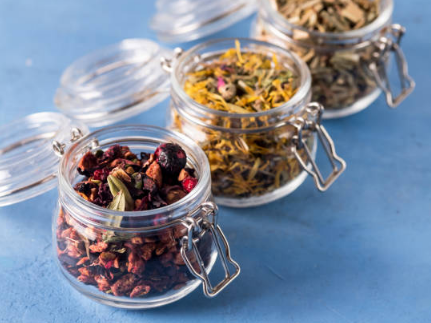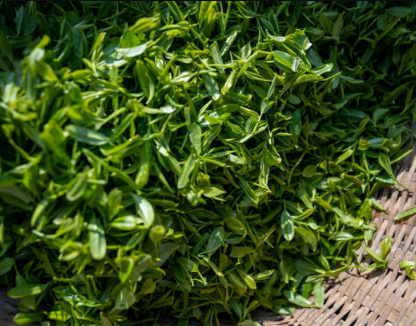While both green and black tea are considered healthy beverages, you may wonder if one is better for you than the other. Although green tea is often considered the “healthiest” tea due to its high antioxidant content, black tea also has some surprising benefits.
This article provides a detailed analysis of the differences between green and black tea, including their caffeine content and potential benefits, to see which is best for health.

What is Black Tea?
All real teas, including black and green teas, are made from the leaves of the tea tree plant. Black tea has a more intense flavor and darker color than other types of tea, such as green and white tea, because it undergoes more oxidation (exposure to air), resulting in its characteristic color and rich flavor.
Black tea has a strong malty flavor and is often enjoyed with milk or cream. Black tea can be purchased in tea bags or loose leaf form, or it can be found in blended teas, such as chai.
The caffeine content of black tea varies, but studies have shown that the caffeine content is around 47 mg per cup. For comparison, one cup of brewed coffee contains 91.8 mg of caffeine.
Type
There are a variety of black teas to choose from, including:
- Assam
- Darjeeling
- Ceylon
- Mixed drinks (Earl Grey, English Breakfast, Chai)
Generally, black tea is named after its place of origin. For example, Assam black tea comes from the state of Assam in northeastern India. Black tea can also be mixed with ingredients such as essential oils to make blended teas with different flavors. For example, the popular Earl Grey tea is made by mixing black tea with bergamot oil.
Health Benefits:
1. It is rich in antioxidants.
Black tea is rich in health-promoting compounds, such as the polyphenol antioxidants theaflavins and thearubigins, which are responsible for the bitter taste and dark color of black tea. These substances provide significant benefits to your body, such as preventing cell damage and reducing inflammation.
The results of the study suggest that regular consumption of antioxidant-rich black tea may help reduce the risk of several health conditions, including depression, breast cancer, and type 2 diabetes.
2. It may help reduce the risk of depression.
One study found that people who drank more than one cup of black tea per day had a lower risk of depression compared to those who drank less than one cup of black tea per day.
Black tea contains a variety of compounds, including polyphenols and the amino acid L-theanine, which may reduce the risk of depression by modulating the activity of the neurotransmitter dopamine and the gut-brain axis (the signaling pathway between the digestive tract and the central nervous system).
3. This is good for metabolic health.
Studies have also shown that drinking black tea may help reduce blood lipid levels, including LDL cholesterol, and may help maintain a healthy weight by promoting lipid metabolism and inhibiting lipid absorption and accumulation.

What is Green Tea?
Green tea comes from the same plant but has a different look and taste than black tea.
Green tea has a lower degree of oxidation, keeping the tea leaves green. Its flavor is not as strong as that of black tea; It is often described as grassy and slightly sweet.
“Green tea doesn’t go through the same oxidation process as black tea,” functional medicine practitioner Will Cole (IFMCP, DNM, DC) previously told Mindbodygreen. “This allows for the highest levels of catechins, especially the super-beneficial compound epigallocatechin-3-gallate (EGCG),” Cole says.
Like black tea, green tea can also be purchased in the form of tea bags and loose leaf tea. You can also find matcha in powdered form. Green tea is usually drunk plain, but some people use sweeteners such as lemon juice or honey to enhance the flavor of the tea.
One cup of brewed green tea contains only 29.4 mg of caffeine, which is significantly lower than black tea. Since green tea is lower in caffeine, people who are sensitive to the stimulating effects of caffeine can enjoy green tea without side effects such as jittery and difficulty falling asleep.
Type
There are many types of green tea, each of which is grown in a different way and harvested in different seasons. They include:
- Sencha
- Bancha
- Matcha
Sencha green tea is the most common type of green tea in Japan and comes from the first menarche of green tea leaves, while bancha green tea is harvested later in the tea season, the last tide of the tea tree. Matcha is a concentrated green tea powder that is rich in antioxidants such as flavonoids, flavonols, and phenolic acids, which make up 30% of its dry weight. Matcha has become very popular in the United States over the past decade and is often used in hot and iced beverages such as matcha lattes.
Health Benefits
1. It contains anti-inflammatory compounds.
Experts attribute the health benefits of drinking green tea to its high concentration of polyphenol antioxidants, including catechins (such as EGCG) and flavanols 15 kaempferol, myricetin, chlorogenic acid, quercetin, and tea gallicin. EGCG is one of the most well-known and studied compounds in green tea and has been shown to have powerful anti-inflammatory16, antioxidant, neuroprotective, and anti-diabetic effects.
Decades of research have shown that a diet rich in green tea can protect against several chronic diseases and health conditions, including certain cancers, heart disease, and high blood pressure.
2. It’s calm.
Like black tea, green tea is also rich in L-theanine, which has anti-stress properties. Studies have shown that drinking green tea may help boost mood and prevent symptoms of depression, in part due to the higher L-theanine content of green tea. A review of eight studies found that regular consumption of green tea reduced the risk of depressive symptoms by 8%.
Additionally, drinking green tea may help reduce stress-related adrenal hormone levels. One small study found that drinking six cups of caffeinated green tea per day for six weeks helped reduce depression, anxiety, and stress associated with stuttering, and significantly reduced elevated levels of the adrenal stress hormones cortisol, DHEA, ACTH, and corticosterone in adolescents. Have a moderate stutter.

Which is Healthier?
While both green and black tea have a variety of impressive benefits, green tea may be slightly better than black tea in terms of its health effects. This is because green tea contains higher levels of certain protective plant compounds, including EGCG and L-theanine, than black tea, and may have more powerful disease-fighting properties.
| Tea | Green Tea | Black Tea |
|---|---|---|
| L-Theanine (mg/g) | 6.5 | 5 |
| Catechins (mg/g) | 51-84 | 5-47 |
| Vitamin C (mg/g) | 1.6-4 | 0 |
| Caffeine (mg per cup) | 29.4 | 47 |
One study found that green tea intake among Greek adults aged 50 years and older was associated with a higher likelihood of healthy aging, while black tea intake was inversely associated with healthy aging. The study also found that people who drank green tea were more likely to be physically active and had a lower risk of high blood pressure than those who drank black tea. These findings are attributed to the high levels of L-theanine and catechin compounds in green tea.
Studies have also shown that drinking green tea (rather than black tea) can significantly reduce the risk of cognitive impairment in certain populations. Researchers suspect that the high levels of catechins in green tea have an advantage in protecting the brain. Green tea also contains small amounts of vitamin C, which has cognitive health-enhancing and neuroprotective properties.
Conclusion
Although green tea may have a slight advantage over black tea, that doesn’t mean you have to choose one over the other. In general, drinking tea has been shown to be beneficial to health, so whether you choose to drink green tea, black tea, or both, it should be based on your taste preferences and caffeine tolerance rather than health concerns.
All real teas have a range of health benefits, including roles to support brain and heart health. While there seems to be more data highlighting the benefits of drinking green tea, that’s not to say that drinking black tea is less beneficial. Also, keep in mind that no single food or drink alone will have a significant impact on your health. Your overall diet is paramount when it comes to promoting optimal physical and mental health and reducing your risk of disease. Green and black tea can bring benefits, but they can’t compensate for an unhealthy diet.